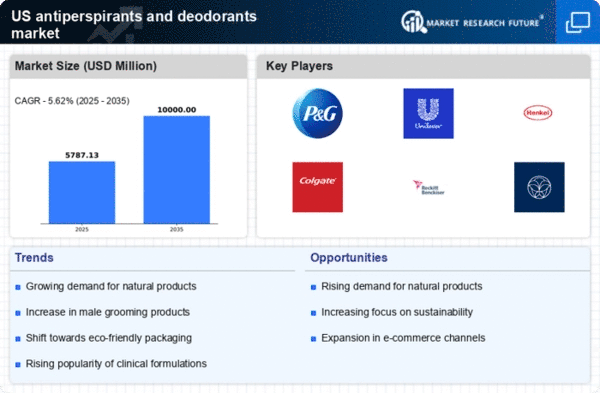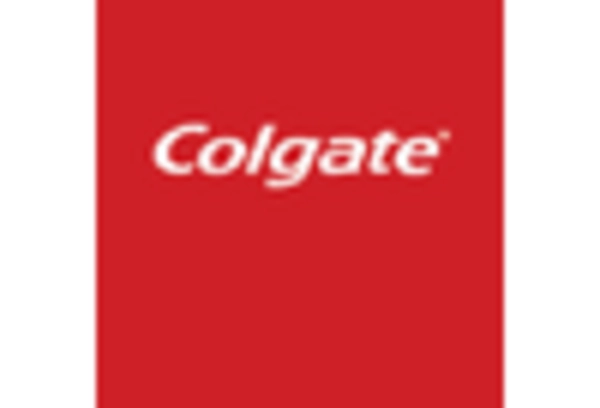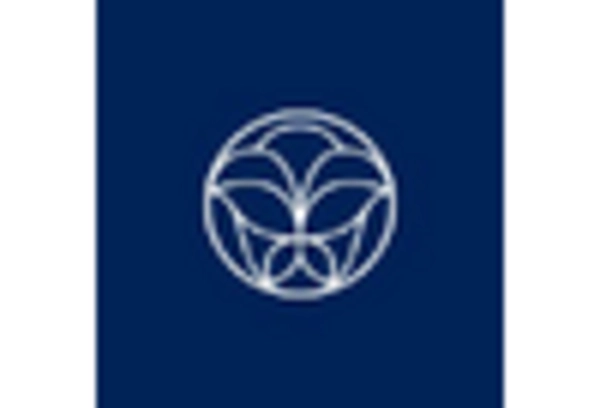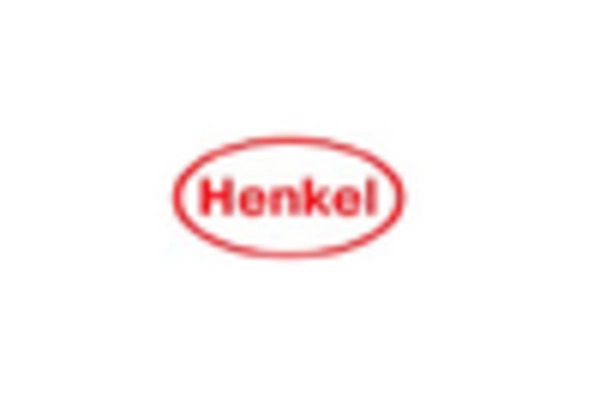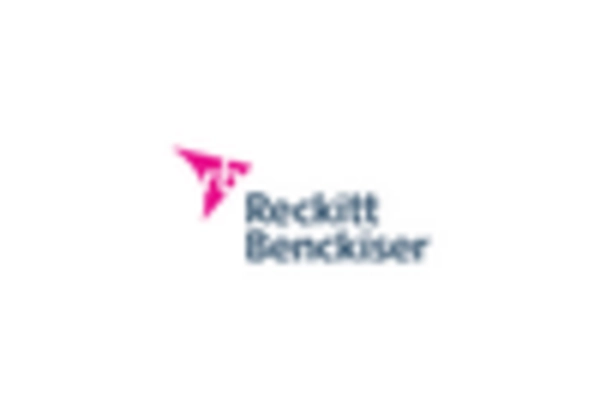Sustainability Initiatives
Sustainability has emerged as a crucial factor influencing consumer choices in the antiperspirants and deodorants market. With a growing emphasis on environmental responsibility, brands are increasingly adopting eco-friendly practices in their production processes. This includes the use of recyclable packaging, sustainable sourcing of ingredients, and the reduction of carbon footprints. Market Research Future indicates that around 30% of consumers are willing to pay a premium for products that are environmentally friendly. As a result, companies are not only focusing on product efficacy but also on their environmental impact, which is likely to drive innovation and competition within the antiperspirants and-deodorants market. This trend suggests that sustainability will continue to play a pivotal role in shaping consumer preferences and brand loyalty.
Technological Advancements
Technological advancements in formulation and delivery systems are significantly impacting the antiperspirants and deodorants market. Innovations such as microencapsulation and advanced aerosol technologies have enhanced product performance and user experience. These technologies allow for longer-lasting effects and improved skin compatibility, which are increasingly important to consumers. Furthermore, the integration of smart technology in personal care products, such as app-controlled dispensers, is beginning to emerge, appealing to tech-savvy consumers. The market for antiperspirants and deodorants is projected to grow at a CAGR of 4% over the next five years, driven in part by these technological innovations. As brands invest in research and development, the potential for new product offerings and improved formulations will likely reshape the competitive landscape.
Changing Lifestyle Patterns
Changing lifestyle patterns, particularly among younger demographics, are influencing the antiperspirants and deodorants market. The rise of active lifestyles, including increased participation in fitness and outdoor activities, has led to a heightened demand for effective and long-lasting products. Consumers are seeking antiperspirants and deodorants that can withstand rigorous physical activity and provide all-day protection. This trend is particularly evident in urban areas, where the fast-paced lifestyle necessitates reliable personal care solutions. Market data suggests that sales of sport-specific antiperspirants have increased by approximately 20% in recent years. As lifestyle choices continue to evolve, brands must adapt their offerings to meet the needs of this dynamic consumer base, thereby driving growth in the antiperspirants and-deodorants market.
Rising Health Consciousness
The increasing awareness of health and wellness among consumers appears to be a significant driver in the antiperspirants and deodorants market. As individuals become more conscious of the ingredients in personal care products, there is a noticeable shift towards formulations that are perceived as safer and more natural. This trend is reflected in the growing demand for aluminum-free and paraben-free options, which have gained traction in recent years. According to market data, the segment of natural and organic antiperspirants and deodorants has seen a growth rate of approximately 15% annually. This shift not only influences purchasing decisions but also encourages manufacturers to innovate and reformulate their products to meet consumer expectations, thereby shaping the overall landscape of the antiperspirants and-deodorants market.
Influence of Social Media Trends
The influence of social media trends is becoming increasingly prominent in the antiperspirants and deodorants market. Platforms such as Instagram and TikTok serve as powerful tools for brand promotion and consumer engagement. Influencers and beauty enthusiasts often share their personal experiences with various products, which can significantly sway public perception and purchasing behavior. This trend has led to a surge in demand for products that are not only effective but also visually appealing and shareable. Market analysis indicates that brands leveraging social media marketing strategies have experienced sales growth of up to 25% compared to those that do not. As social media continues to shape consumer preferences, it is likely that brands will increasingly focus on digital marketing strategies to capture the attention of their target audience in the antiperspirants and-deodorants market.


